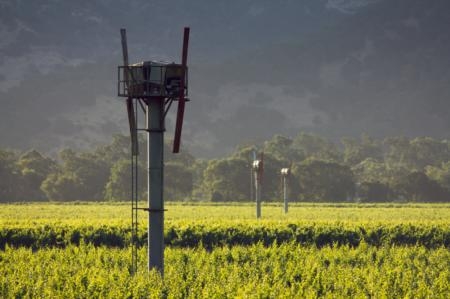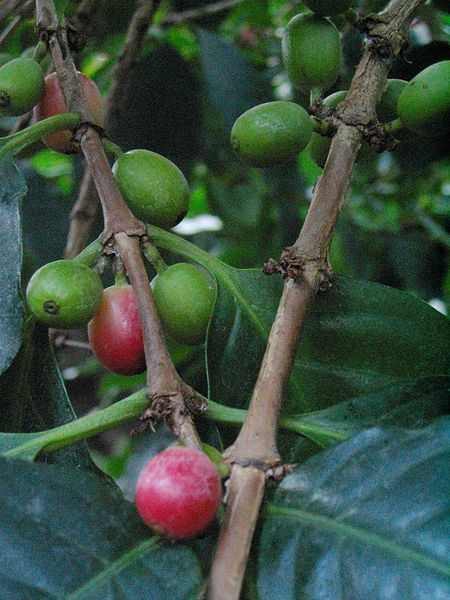From the UC Blogosphere...
Central Valley farmers battle cold nights
From Dec. 3-10, temperatures dropped as low as 31 degrees in Fresno, 26 degrees in Madera, 27 degrees in Merced, 26 degrees in Napa, 25 in Redding and 27 in Redbluff. Growers in these areas were working to avoid damages like those suffered in 2007, when a freeze caused more than $1.4 billion in damage to citrus, avocados, strawberries, vegetables, nursery stock and other crops, the article said.
In northern areas, freezes blackened the tips of some young walnut tree branches, but those are generally pruned off anyway, said Rick Buchner, a University of California Cooperative Extension farm advisor in Red Bluff, Calif.
"There's been no serious damage in the big wood that I've been called to look at yet," Buchner said.
The End Is Near
The parasitic fly (family Tachinidae) never had a chance. It went from floral visitor to spider prey to spider dinner when...

Two cellar spiders work together to capture a Tachinid fly in their web. (Photo by Kathy Keatley Garvey)

While one spider wraps the fly, another bites it in the head, paralyzing it. (Photo by Kathy Keatley Garvey)

Close-up of the fatal bite. (Photo by Kathy Keatley Garvey)
California grown coffee is a new option for locavores
"Fifteen years ago this would not be feasible because most people were satisfied with Yuban or Folgers types of coffee," Ruskey said. "Now people pay 10 to 20 times more than those old prices for . . . unique cups of coffee that have a wide range of flavors from a variety of cultivation techniques."
Ruskey sells the coffee at the local farmers market.
Winter Wonderland for Insects
You've probably already "put a bug" in Santa's ear, telling him what you want.But have you ever thought of putting a bug on...

A ladybug in the winter. (Photo by Kathy Keatley Garvey)

Honey bee heading toward Christmas Cheer, aka red-hot poker (Kniphofia). (Photo by Kathy Keatley Garvey)
Abundant holiday confections demand self-discipline
UC Cooperative Extension nutrition, family and consumer sciences advisor Concepcion Mendoza told Mosby the health problems related to consistent, excessive sugar consumption include obesity, diabetes, hyperglycemia and hypoglycemia, increased risk of heart disease, depression, hypertension, cancer, tooth decay, gum disease and an overall undermining of the body's endocrine system.
"As our body tries to metabolize sugar, sugar draws on our body's reserve of vitamins and minerals," she said. "When those reserves are gone, the metabolism of good cholesterol and fatty acids is impeded, contributing to higher blood serum, triglycerides and bad cholesterol."
The article suggests eating a holiday treat when at celebrations, "but savor a small piece of something sweet rather than sampling everything available."
Woodlake Pride: Youth in gardens, out of gangs
Gosnia Wozniacka (Associated Press), San Francisco Chronicle
Over the past seven years, UC Cooperative Extension farm advisor Manuel Jimenez and his wife Olga have taught hundreds of young volunteers farming techniques, work habits and communication skills to prepare them for jobs or college. With creativity and help from the community, they turned 14 desolate acres into lush gardens of vines, vegetables and fruit trees. And the local police chief credits the program, Woodlake Pride, with helping fight local gang crime.
"We want to grow kids in our gardens, because we've seen what violence, drugs and alcohol can do," Jimenez said.










